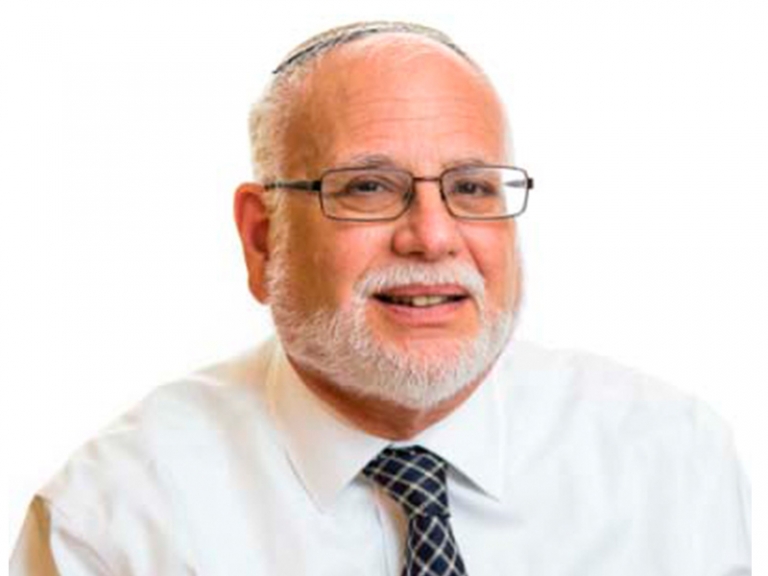D'var Torah by Dr. Kalman Stein, Head of School

Dear Hebrew Academy Community:
I have always been puzzled by the account of the relationship between Yitzchak and his sons as it is depicted in Parashat Toldot. How could Yitzchak Avinu, a person endowed with prophecy and spiritual powers, have believed that it was Esav rather than Yaakov who deserved his Brachot and that someday the Jewish People would be saying Elokai Avraham, Elokai Yitzchak, V’Elokai Esav? Yes, Yitzchak’s eyesight was very poor. But his love for Esav is mentioned long before his eyesight had begun to fail and impaired vision does not seem to be sufficient reason for him to have missed rather clear evidence—such as Esav’s decision to marry two idol worshippers—about the relative merits of his two sons?
The Netivot Shalom offers a striking explanation of Yitzchak’s thought process. Yitzchak understood his family’s mission: They were to engage in the process of Tikkun, of closing the gap between humanity and God which had been caused by the iniquity of previous generations. Yitzchak thought that Esav, not Yaakov, was the son who had the ability to continue implementing the family mission.
How did Yitzchak come to the conclusion? How could he not have recognized Yaakov’s spiritual greatness? Yitzchak, argues the Netivot Shalom, indeed did recognize and appreciate Yaakov. But he thought that those elevated spiritual powers would render him unfit for the job. Why? Because he believed that Yaakov was not sufficiently connected to the material reality of the world and of the masses of humanity. Yaakov, whose face, Chazal tell us, is engraved on Hashem’s throne, who was on the spiritual level of the angels, the one who flourished in the pristine atmosphere of the Beit Midrash, Yitzchak believed, could not lower himself to fulfill the mission which was to help humanity learn to elevate the mundane activities of everyday human existence—eating, drinking, earning a living—to the service of God. It was a case of, using an old Yiddish expression, “the bride is too beautiful:” Yaakov, his father thought, was too spiritual, too ensconced in the ethereal realm, to connect with the rest of us mere mortals.
Esav, on the other hand, was the Ish Sadeh, the man of the material world, the hunter who was daily involved in meeting his physical needs. Yitzchak thought, mistakenly, that Esav was taking the opportunity to turn every mundane activity into Avodat Hashem, into a spiritually and religiously edifying experience. That is why the blessing that Yitzchak originally intended for Esav—ויתן לך האלקים מטל השמים ומשמני הארץ–should be understood not as “May God give you dew from heaven and the richness of earth” but rather as “May God grant you אלוקות—the ability to draw spirituality from and infuse godliness into the material world.”
In the end, of course, Yitzchak realized that he had been deceived and manipulated by Esav who lived a life devoid of spirituality and religious intention. And he came to understand, as Rivka had perceived much earlier, that it was Yaakov who, as symbolized by the ladder in next week’s Torah reading, had the ability to connect heaven and earth, godliness and the prosaic life of the human being and his/her needs.
What can our community learn from this? I do not and would not, God Forbid, compare any other Jew of any kind to Esav, but I wonder what Yitzchak Avinu, who in the end came to understand that sometimes, as with Esav, what one sees on the surface is all there is, would think of us. All of us in our community live in the real world. We work to support our families. We read, go to the theater, attend concerts, and partake (one hopes with appropriate limitations) in all that modern life and culture have to offer. But do we really infuse holiness into our professional lives? Do we use the best of general culture to enhance ourselves spiritually, to make ourselves better people and better Jews? Or are we just plain ordinary modern people who do our work and enjoy our leisure activities exactly like everyone else but who happen to have some ritual do’s and don’ts which govern certain aspects of our lives? Something I occasionally ponder in my introspective moments.
Shabbat Shalom,
Dr. Kalman Stein
Head of School
kstein@rasg.org

